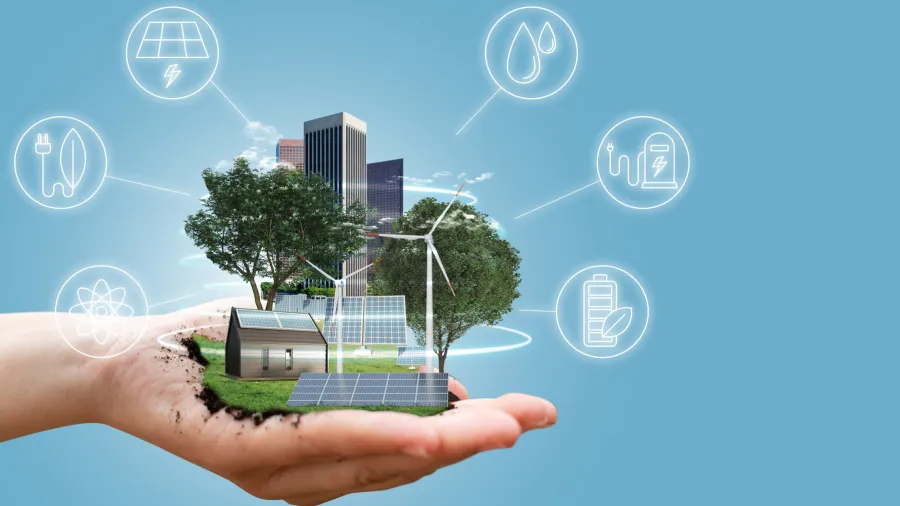
Hong Kong’s Green Revolution: A New Era of Sustainable Development
Racing against the climate clock, Hong Kong is taking decisive action. With a bold goal to slash carbon emissions by 50% within the next decade, and a vision for carbon neutrality by 2050, Hong Kong is leading the charge in the battle against global warming.
Today, technology stands at the forefront, driving innovative solutions that pursue a net-zero carbon future, champion clean energy, and pioneer sustainable practices. Technology stands as a pivotal force in our journey to achieve the ambitious 1.5°C target, playing a vital role in preserving our planet for the generations to come.
I was thrilled to see this year’s StartmeupHK Festival has brought together leading experts, entrepreneurs, and key stakeholders to explore solutions to tackle this important issue at the 1.5C Summit, one of the main events of the Festival, which is a one-of-a-kind tech summit on climate change focused on the actions need to be taken in order to drastically reduce emissions before next decade.
During the event, experts highlighted the potential of Hong Kong's thriving startup ecosystem to pioneer innovative technologies that can address climate change issues. Panellists discussed innovative approaches to cleaner energy and the challenges and opportunities in implementing sustainable practices. It was agreed that cleaner technologies are readily available for corporations to meet their sustainability and environmental, social and governance (ESG) targets. More than 30 local startups showcased their innovative solutions for combating climate change and supporting corporations on their sustainability journey.
The speakers also encouraged investors to carefully consider their investment decisions and ensure that they invest in companies that can truly make a measurable and positive impact on the community.
Emerging ESG Reporting Standards: A New Era Unfolds
In terms of investment, this year looks set to be pivotal for investment in climate change mitigation around the world with the release of new ESG reporting standards.
The International Sustainability Standards Board (ISSB) issued its inaugural standards in June. Creating a global baseline for sustainability-related disclosure, International Financial Reporting Standards (IFRS) S1 and IFRS S2 are expected to help improve trust and confidence when companies report their ESG progress internationally. Concurrently, the United States, Europe, and Asia Pacific authorities are seeking to leverage the new ISSB standards to enhance local climate-related reporting, support investment decision making and promote the raising of green capital in their markets. In April 2023, Stock Exchange of Hong Kong Limited has also issued a consultation paper for climate change disclosure in alignment of the new standards.
Companies must step up their climate change mitigation efforts and bolster their ESG and climate disclosure practices to secure future investments and maintain regulatory compliance.
It is no longer sufficient for companies to only propose ambitious climate target plans. Investors and regulators increasingly expect that companies will disclose the risk and opportunities that they see concerning climate change in their financial statements. Firms will need to demonstrate measurable progress towards their ESG commitments on a regular basis. This means that not only are companies adopting green and sustainable solutions, but they are also improving both the quantity and quality of the data they collect and disclose to investors and regulators.
Unleashing GreenTech: Powering the New Era with Sustainable Innovation
With IFRS S1 and S2 moving the world towards standardised reporting formats, investors can more easily compare companies and make faster and better investment decisions. Greentech not only helps companies archieve carbon neutrality, switching to cleaner alternatives, and recycling materials, but also generate reliable ESG data whilst reducing the cost of compliance.
Regulators across the globe are also leveraging technology to support the growth of green finance. For example, the Hong Kong Monetary Authority (HKMA) is collaborating with the Bank for International Settlements and the UN Climate Change Global Innovation Hub to explore the use of blockchain, smart contracts and other technologies to improve the transparency and traceability of green bonds. HKMA issued its first tokenised green bond, a HK$800m one-year bond that uses blockchain to record legal ownership, in February.
These ongoing shifts all create substantial opportunities for innovators and entrepreneurs with solutions, services and technologies that help the business community mitigate climate change, reduce pollution, save resources, and meet their reporting obligations.
Hong Kong: The Rising Star of GreenTech Innovation
Hong Kong is rapidly emerging as a powerhouse in the greentech sector, fueled by a host of trailblazing startups leveraging cutting-edge technologies.
For example, one of the Hong Kong’s startups has invented bionic materials that were inspired by the biological structure of ants living in the Sahara Desert. Such materials can be used on buildings that decrease room temperatures by five to six degrees Celsius. In addition, one of the city’s startups is combating factors that are creating a global food shortage problem by developing cell-based meat, with a focus on fish. In late 2020, the firm debuted Asia’s first cultivated fish fillet and plans to launch more cultivated meats overtime.
We are also delighted to see that a company at Hong Kong Science and Technology Parks nurtured under our startup ecosystem, has recently become the first Hong Kong company to be awarded the coveted Earthshot Prize 2023 in the "Clean Our Air" category. This recognition demonstrates that Hong Kong possesses a supportive environment for startups to thrive on the international stage.
Startup founders, investors and entrepreneurs can be confident that a supportive community is being developed in Hong Kong. As Hong Kong’s green innovation sector expands, it will gain increasing momentum and attract more investments. This growth positions startups to cater to the escalating demand for solutions related to ESG issues. Ultimately, this will contribute to the creation of a greener and more sustainable world.
By Jayne Chan, Head of StartmeupHK, Invest Hong Kong

















 Advertise
Advertise






